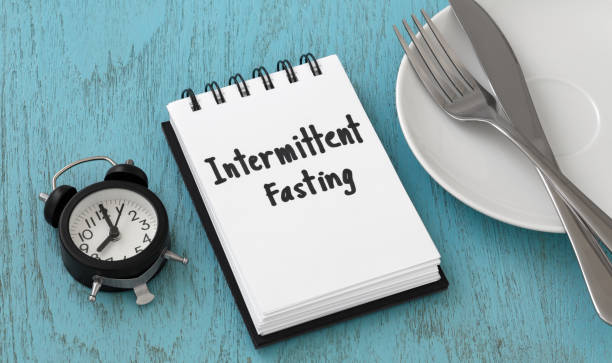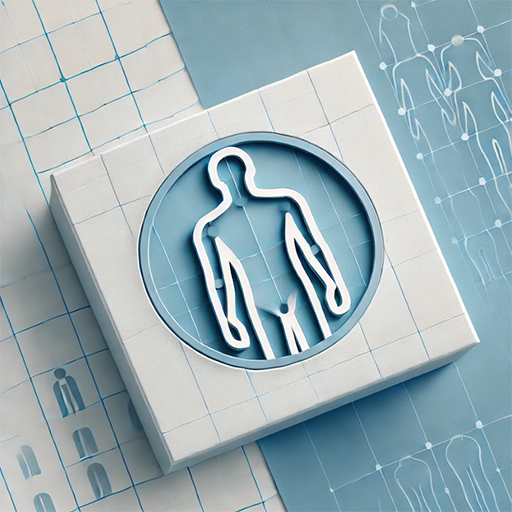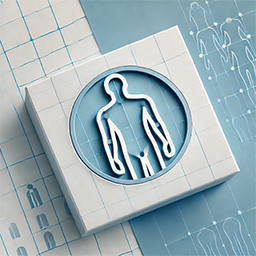Introduction
Choosing the right diet can feel confusing, especially with so many options competing for attention. From keto and paleo to vegan and intermittent fasting, each plan claims to be the solution for weight loss, energy, or better health. The truth is, no single diet works for everyone. Your age, activity level, medical conditions, and personal preferences all play a role in how well a diet will fit your lifestyle.
This guide breaks down the pros and cons of popular diets so you can see what works and what doesn’t before you commit. Some diets may deliver fast results but are hard to maintain, while others focus on balance and long-term health. Whether your goal is to lose weight, improve heart health, manage blood sugar, or simply feel more energized, understanding the strengths and weaknesses of each approach will help you make a choice that is realistic, healthy, and sustainable.
Why Diet Choice Matters
Food isn’t just fuel—it’s one of the biggest factors that shapes your overall health. The way you eat impacts your weight, blood sugar, heart health, digestion, and even mental focus. A diet high in processed foods and sugar may give you quick bursts of energy, but it often leads to crashes, cravings, and long-term health issues. On the other hand, balanced diets built around whole foods can support steady energy, clearer thinking, and better long-term wellness.
While some diets may promise fast results, they can be difficult to stick with over time. Strict rules or heavy restrictions often lead to burnout or yo-yo dieting. In contrast, other diets take a slower, more balanced approach. These can be easier to maintain but may require more patience before you see major changes.
That’s why it’s so important to look closely at both the benefits and the downsides before starting any new eating plan. By understanding how a diet really works, you can choose one that not only matches your health goals but also fits your lifestyle for the long run.

The Keto Diet
Pros of Keto
The ketogenic diet focuses on eating very low carbs and high fat, with moderate amounts of protein. By cutting down carbs, your body no longer relies on glucose as its main fuel source. Instead, it enters a state called ketosis, where it begins to burn stored fat for energy. This shift can help reduce cravings, stabilize blood sugar, and promote weight loss. People often notice increased mental focus and steady energy because fat provides a more consistent fuel compared to carbs.
Benefits include:
- Fast weight loss due to reduced carbs.
- Better blood sugar control, especially for people with type 2 diabetes (CDC).
- Improved mental focus from steady energy levels.
Cons of Keto
But keto isn’t for everyone. Downsides include:
- Strict restrictions on carbs, making dining out harder.
- Keto flu symptoms like fatigue and headaches when starting.
- Nutrient gaps if not planned well.
The Paleo Diet
Pros of Paleo
The paleo diet mimics what early humans ate, focusing on lean meats, fish, fruits, vegetables, nuts, and seeds. The idea is to return to whole, natural foods that would have been available before farming and processed products became common. By removing refined sugar, dairy, and grains, the diet aims to reduce inflammation and support healthier digestion. Many followers also report improved energy, fewer cravings, and better weight management because the plan eliminates highly processed foods.
Benefits include:
- Whole, natural foods with less processed junk.
- Supports weight loss by cutting out added sugars.
- Anti-inflammatory effects from nutrient-rich foods (Harvard Health).
Cons of Paleo
Challenges include:
- Cuts out healthy grains and legumes, which are good fiber sources.
- Can be expensive, as it relies on high-quality meats and produce.
- Hard to sustain long-term due to restrictions.
The Vegan Diet
Pros of Veganism
A vegan diet removes all animal products and focuses entirely on plant-based foods such as fruits, vegetables, grains, legumes, nuts, and seeds. By cutting out meat, dairy, and eggs, this diet emphasizes foods that are naturally high in fiber, vitamins, and antioxidants. Many people choose veganism not only for health benefits but also for ethical and environmental reasons. When planned well, a vegan diet can support weight management, improve heart health, and lower the risk of certain chronic diseases.
Benefits include:
- Heart health support, thanks to lower cholesterol and saturated fat.
- Lower risk of certain cancers, according to the World Health Organization.
- Environmentally friendly, reducing carbon footprint.
Cons of Veganism
Potential downsides are:
- Nutrient deficiencies, especially in vitamin B12, iron, and omega-3s.
- Limited food options when dining out.
- Requires careful planning to stay balanced.
The Mediterranean Diet
Pros of Mediterranean Eating
This diet focuses on olive oil, fish, vegetables, whole grains, legumes, nuts, and moderate wine. Known as the Mediterranean diet, it is inspired by the traditional eating habits of countries bordering the Mediterranean Sea. The plan emphasizes healthy fats like olive oil, lean proteins from fish, and nutrient-dense plant foods that provide fiber and antioxidants. By limiting red meat and processed foods, this diet supports long-term health and promotes a balanced lifestyle rather than quick fixes.
Benefits include:
- Strong heart health support, proven in many studies (Mayo Clinic).
- Flexible and easy to follow with fewer restrictions.
- Rich in antioxidants, helping fight inflammation.
Cons of Mediterranean Eating
- Slower weight loss, as it doesn’t cut calories sharply.
- Olive oil and nuts are calorie-dense, which may lead to overeating.
- Can be costly, depending on food choices.

Intermittent Fasting
Pros of Intermittent Fasting
This method focuses on when you eat, not what you eat, making it different from most traditional diets. Instead of tracking calories or cutting out food groups, the goal is to schedule meals within specific time windows. The most common style is 16:8, where you fast for 16 hours and eat all your meals within an 8-hour period. Other variations include the 5:2 method, where you eat normally for five days and reduce calories on two non-consecutive days, or alternate-day fasting. By giving your body regular breaks from eating, intermittent fasting may improve metabolism, support weight loss, and help regulate blood sugar.
Benefits include:
- Weight loss support by reducing calorie intake.
- Improved insulin sensitivity for better blood sugar control.
- May boost longevity, according to early research.
Cons of Intermittent Fasting
- Hunger and irritability during fasting windows.
- Hard to sustain with busy schedules.
- Risk of overeating during eating windows.
Low-Carb Diets (Non-Keto)
Pros of Low-Carb
These diets reduce carbs but don’t go as extreme as keto. Instead of cutting out almost all carbohydrates, they focus on lowering daily carb intake while still allowing foods like fruits, beans, and whole grains in moderation. This makes them easier to follow and more flexible than strict keto plans. Low-carb diets often emphasize lean proteins, healthy fats, and non-starchy vegetables, which can help with weight control and blood sugar management. Because they are less restrictive, they can also be more sustainable for people who want results without giving up entire food groups.
Benefits include:
- Weight loss without severe restrictions.
- Better blood sugar control for prediabetes.
- Flexible choices with room for fruits and some grains.
Cons of Low-Carb
- Energy dips if carbs are cut too low.
- Fiber loss if whole grains are removed.
- Difficult for athletes needing higher carb intake.
The DASH Diet
Pros of DASH
The Dietary Approaches to Stop Hypertension (DASH) diet focuses on lowering blood pressure with balanced meals. It emphasizes eating more fruits, vegetables, whole grains, lean proteins, and low-fat dairy while reducing sodium, red meat, and processed foods. By increasing nutrients like potassium, calcium, and magnesium, the DASH diet helps relax blood vessels and improve heart health. It is often recommended by doctors because it not only supports healthy blood pressure but also reduces the risk of stroke, diabetes, and heart disease. Unlike fad diets, DASH is designed to be a long-term lifestyle change rather than a quick fix.
Benefits include:
- Scientifically backed for reducing high blood pressure (National Heart, Lung, and Blood Institute).
- Encourages fruits, veggies, and whole grains.
- Supports heart health and weight management.
Cons of DASH
- Can feel restrictive due to limits on salt and red meat.
- Requires meal planning to stick with guidelines.
- Less trendy, so fewer recipe resources.
The Flexitarian Diet
Pros of Flexitarian
This is a semi-vegetarian plan that is mostly plant-based but still allows room for occasional meat, poultry, or fish. Known as the Flexitarian diet, it combines the benefits of vegetarian eating with the flexibility of including animal products in moderation. The focus is on whole foods like fruits, vegetables, legumes, whole grains, nuts, and seeds, while limiting processed foods and added sugars. Because it doesn’t completely eliminate meat, many people find it easier to follow compared to strict vegan or vegetarian diets. This balance makes it a practical choice for improving overall health while still enjoying favorite foods from time to time.
Benefits include:
- Balanced and flexible, easy to adapt.
- Supports heart health with plant-rich meals.
- Easier to follow long-term than strict diets.
Cons of Flexitarian
- Slower weight loss, since it’s not very restrictive.
- Still requires planning to get enough protein.
- Not suitable for people wanting strict rules.

How to Choose the Right Diet for You
When picking a diet, it’s important to think beyond short-term results. A plan that works for a friend or family member may not be the right choice for you. Consider these key factors before deciding:
- Your health goals – Are you aiming for weight loss, better heart health, balanced blood sugar, or more daily energy? Different diets target different outcomes, so match the plan with your personal goals.
- Lifestyle fit – Some diets are strict and require careful tracking, while others are more flexible. Choose one that matches your routine, work schedule, and social life so it doesn’t feel overwhelming.
- Sustainability – Quick fixes may bring results, but they’re hard to maintain. Ask yourself if you can follow this way of eating not just for weeks, but for months or years.
- Medical needs – Always consider your health conditions. For example, people with diabetes, high blood pressure, or food allergies should check with a doctor before starting a new diet to avoid risks.
No diet is perfect, and that’s okay. The best diet is the one you can follow consistently while still enjoying life. It should help you feel healthier, not stressed or restricted. Remember, small and steady changes often lead to lasting success.
Conclusion: Find What Works for You
Every popular diet has its pros and cons, and no single plan is perfect for everyone. For example, keto can deliver fast weight loss and better blood sugar control, but it can be difficult to maintain over time due to strict carb limits. Paleo and vegan diets encourage eating more whole, natural foods, yet they often require extra planning to avoid nutrient gaps or food boredom.
The Mediterranean and DASH diets are backed by strong research for heart health and overall wellness, making them easier to follow long-term. On the other hand, intermittent fasting and low-carb diets can be effective for weight management and blood sugar balance, but they demand structure and discipline to see results.
The key is to find a balance that matches your health needs, personal goals, and daily lifestyle. A good diet should not only support your body but also fit into your life without causing stress. When your eating plan feels realistic and enjoyable, you are more likely to stay consistent and achieve lasting results.
👉 Your turn: Have you tried any of these diets? What worked—or didn’t—for you? Share your experience in the comments below!



